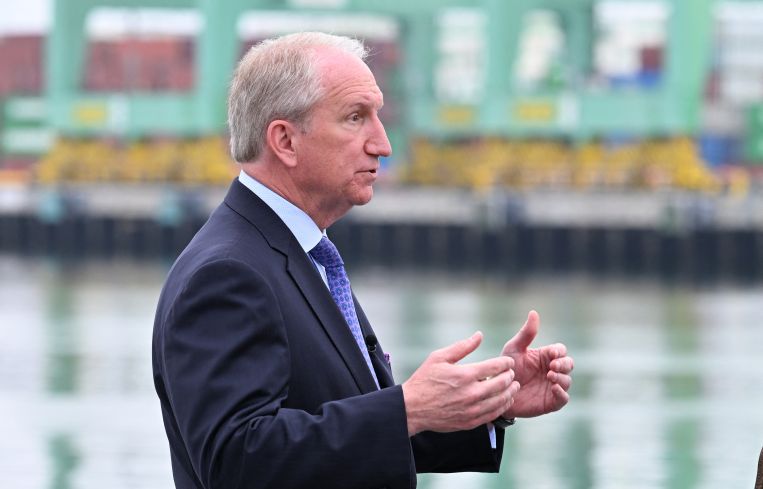U.S.-China Tariff Pause Leaves Uncertain Path for Industrial Real Estate and Imports
The respective countries significantly lowered their tariffs on each other for 90 days, but SoCal imports expected to be down 25% this month
By Nick Trombola May 12, 2025 4:45 pm
reprints
The U.S. and China’s temporary halt on escalating reciprocal tariff policies sent global stocks upward on Monday, but the warehousing industry isn’t celebrating the same as Wall Street.
The U.S. for 90 days lowered its tariffs on Chinese goods from 145 percent to 30 percent, with China likewise lowering its duties from 125 percent to 10 percent, effectively stanching a trade war launched by President Donald Trump last month as part of his administration’s efforts to reset the country’s global trade position.
Yet the temporary truce is unlikely to produce meaningful positive results when it comes to actual imports, Gene Seroka, Port of Los Angeles executive director, told The Wall Street Journal on Monday. Even with many companies purchasing extra inventory earlier this year in anticipation of heavy tariffs, Seroka said he still expects a May import volume decline of 25 percent year-over-year at the Port of L.A.
“Even at a 30 percent tariff with a 90-day reprieve, it’s not going to dramatically change what we’re seeing right now,” Seroka told WSJ.
A volume decline of 25 percent at the busiest port in the Western Hemisphere will almost certainly have consequences. Activity in the Ports of L.A. and Long Beach together account for more than 40 percent of all inbound containers to the U.S.
Such a lesion is most likely to be felt by Southern California’s industrial and logistics market, already in a state of flux as it adjusts to a post-pandemic correction. Roughly 13 percent of Greater L.A.’s GDP — not to mention over $93 billion of the region’s tax revenue — is reliant on shipping and logistics, according to Stephen Cheung, president and CEO of the Los Angeles County Economic Development Corporation. Furthermore, just Chinese-based third-party logistics companies now account for about 4 percent of the total SoCal market.
Still, organizations such as the National Retail Federation (NRF) praised the two countries for agreeing to the tariff pause, even as it advised caution in the months ahead.
“This temporary pause is a critical first step to provide some short-term relief for retailers and other businesses that are in the midst of ordering merchandise for the winter holiday season,” the NRF said in a statement on Monday. “And over the long term, this lays the foundation for substantial progress in achieving truly fair and balanced trade relationships with both China and our other trade partners around the world.
“We urge the administration and our Chinese trade partners to continue discussions to address the ongoing issues, work to remove the remaining national security tariffs, and provide long-term stability between the two largest global economies.”
Nick Trombola can be reached at ntrombola@commercialobserver.com.



